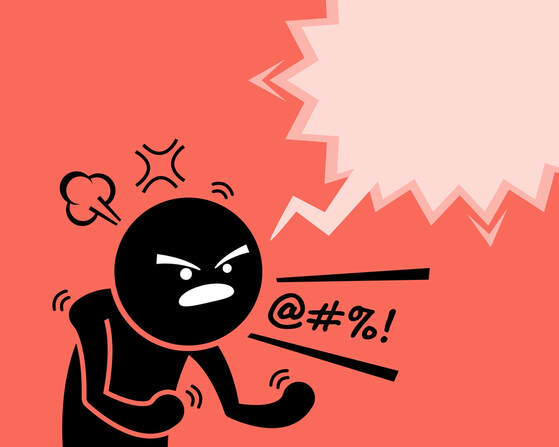In this Exploring Mental Health series, we shine a spotlight on different aspects of mental health. First up is anger. What’s the difference between healthy and unhealthy anger, and how can we control angry behaviour if it becomes destructive?
Why do you experience anger?
Anger is a normal, healthy emotion and can be very helpful to experience. It alerts you to situations where you need to take action, motivates you to make changes, and helps you to stay safe when faced with a danger.
There are lots of things that can trigger you to experience anger, including:
- Events (such as a bereavement or other loss)
- Being threatened or attacked
- Being treated unfairly or being powerless in a situation
- Not achieving goals
- Substances (e.g. drugs or alcohol)
- Mental illness (e.g. anxiety or depression)
What influences your reaction to feeling angry?
The way you react to feeling angry can depend on:
- The situation you’re in (if you’re experiencing lots of difficulties or stresses in your life you may become angrier than usual, or find it harder to control your anger)
- Your family history (as a child you may have learned unhelpful responses to anger from the adults around you)
- Events in your past (if you have suppressed anger from past experiences)[i]
What are the symptoms of anger?
Anger feels different for everyone. You may experience any number of the following symptoms, to varying degrees:
Physical symptoms
- Churning sensation in your stomach
- Tightness in your chest
- Increased and rapid heartbeat
- Tense muscles
- Feeling hot
- An urge to go to the toilet
- Sweating, especially your palms
- Pounding head
- Shaking or trembling
- Dizziness
- Being tense, nervous or unable to relax
- Feeling guilty
- Feeling resentful towards other people or situations
- Getting easily irritated
- Feeling a 'red mist' coming down on you
- Feeling humiliated[ii]
When is anger unhealthy?
Although anger is a normal, human emotion, it can become unhealthy, affecting your relationships, work, social life, and your physical and mental wellbeing. If you’re unsure whether your anger is unhealthy, ask yourself:
- Do you regularly express your anger through unhelpful or destructive behaviour, hurting yourself or others?
- Is your anger having a negative impact on either your physical or mental health?
- Is anger your go-to emotion, blocking out your ability to feel other emotions?[iii]
If you answered ‘yes’ to any of these, your anger has probably become unhealthy. Other signs that anger may be a problem include:
- Regularly feeling angry at an intense and overwhelming level
- Having difficulty controlling your anger
- Feeling you have to hide or hold in your anger
- Feeling distressed as a result of getting angry
- Using alcohol or drugs to manage your anger
- Withdrawing from people or situations
- Regretting things you said or did when you were angry[iv]
What are the different types of unhealthy anger?
There are many different types of unhealthy anger. These include:
- Chronic anger (this is long-term anger, and can impact the immune system and cause physical health issues such as high blood pressure and heart disease)
- Passive anger (this may be expressed as sarcasm, sulkiness, apathy or a refusal to engage with people or tasks)
- Overwhelmed anger (this is caused by life demands that are too much to cope with)
- Self-inflicted anger (this is directed inward towards yourself, and may be caused by feelings of guilt)
- Judgmental anger (this is directed outward towards others and may come with feelings of resentment)
- Volatile anger (this involves excessive, violent or aggressive anger responses)[v]
How can you manage your anger?
Using anger management techniques can help you control your anger outbursts when you experience them. While longer-term strategies can help to reduce your overall feelings of anger and prevent outbursts.
In the heat of the moment you can manage your anger by:
- Looking out for symptoms of anger, giving warning signs of an outburst (see ‘What are the symptoms of anger?’ above)
- Counting to 10 before responding to the person or situation
- Clenching and unclenching your fists and other muscles throughout your body to release physical tension
- Scribbling on or tearing up paper
- Screaming into or hitting a pillow
- Taking deep, controlled breaths, focusing on the sensation of breathing to take your attention away from the situation
- Removing yourself from the situation for at least a few minutes
- Doing something to distract yourself, such as having a shower or dancing to music
- Writing out your thoughts and feelings
In the longer-term you can control your anger by:
- Exercising regularly to reduce stress and tension levels
- Practising good sleep hygiene
- Having a balanced diet
- Avoiding drugs and alcohol
- Learning your anger triggers (keeping a diary can be helpful for understanding these and noticing any patterns)
- Identifying your thought patterns and challenging automatic negative thoughts (a therapist can help you do this if it feels tricky to identify and make changes to these)
- Talking to people around you about your feelings, before they become overwhelming
- Improving your communication skills so you can express your thoughts and feelings, without using anger or aggression
When to seek help
If you’re experiencing unhealthy anger, and it has become difficult to manage or is having a negative effect on your life and those around you, there is lots of support available.
The first step is to speak to your GP and explain what’s been happening and how you’re feeling. They can refer you for NHS counselling or to an anger management course. Your local Mind branch may also provide free counselling or anger management services. Alternatively, you can contact a private therapist and pay for counselling sessions. Your workplace may also offer access to counselling.
If you’d like to explore your feelings of anger, get in touch to make an appointment.
[i] NHS Moodzone, Why Am I So Angry?, Available: https://www.nhs.uk/conditions/stress-anxiety-depression/about-anger/
[ii] Mind (2018), How to Cope With Anger: Anger Symptoms, Available: https://www.mind.org.uk/information-support/types-of-mental-health-problems/anger/anger-symptoms/#.XGl3mNHgo_V
[iii] Mind (2018), How to Cope With Anger: What is Anger?, Available: https://www.mind.org.uk/information-support/types-of-mental-health-problems/anger/about-anger/#.XGlal9Hgo_U
[iv] Headspace, What is Anger and Its Effects on Mental Health, Available: https://headspace.org.au/young-people/what-is-anger-and-its-effects-on-mental-health/
[v] PsychGuides.com, Anger Symptoms, Causes and Effects, Available: https://www.psychguides.com/guides/anger-symptoms-causes-and-effects/


 RSS Feed
RSS Feed